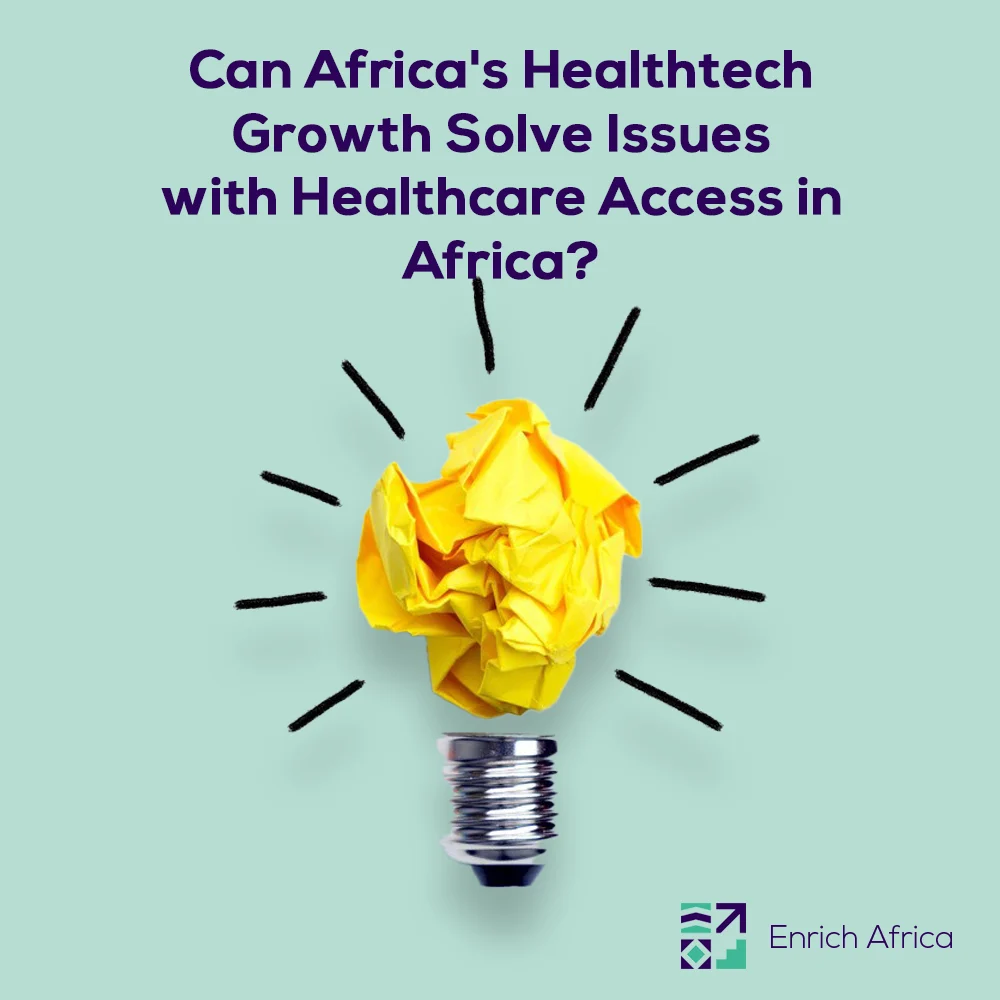
Africa has been called a lot of things and by a lot of people. For the most part, it is home to a billion and one ideas and opportunities — a land of promise and hope — and while these may be true of the world’s second-largest continent by landmass, the ever-present issues surrounding access to healthcare may just be Africa’s biggest threat to actualise these hopes and promises.
The Issue
In many parts of Africa, healthcare is not as easily accessible as you one would want to imagine. People are still having difficulties getting even the smallest level of healthcare in their communities — and that is only a fragment of the issue. There’s also the lack of political will for many healthcare workers and the lack of well-trained health personnel which leads to the advancement of ignorance on all tiers of this vital sector. Another interesting issue that stands out for this big continent with a lot of promise is the unavailability of human resources in several African communities, there just isn’t enough (well-qualified) doctors, nurses and everything in-between. There is also the maintenance issue that comes from corrupt leaders and followers. The menace of corruption in Africa not only affects the growth of many African nations in the global eye, but it goes further to affect the health and well being of their various constituencies.
All of the aforementioned issues are quite apparent in many African countries but there now appears to be a shift as technology is now being integrated into many healthcare processes. From health education to healthcare accessibility, the introduction of technology has shown promise to these healthcare issues. Well, just like many other sectors of the economy of a nation (or continent in this case), technology has always played an important role in their advancement. When technology was introduced in the financial economy, there was a boom in that sector and aside from looking at the benefit from the top tier of stakeholders in the economy, it made life easy for everyone who would rather sit in than go to any physical office to transact.
Solving the Issue: A Pandemic Blessing
Now in Africa, the healthtech sector is booming as startups are emerging from every corner of the continent with good number of investments too. As of 2020, the year when the coronavirus peaked, there were about 180 companies active in Africa’s healthtech space, while investment continued to snowball, peaking in the first half of 2020 despite the COVID-19 pandemic.
In a 2020 report by Disrupt Africa, the number of startups active in the healthtech space on the continent was said to have grown by 56.5% over the last three years. This report discovered that in the same year (2020), Africa’s healthtech startups have raised over $90 million.
“Interest in the e-health space in Africa has accelerated in the last 18 months, and with the advent of the COVID-19 pandemic, there is a sudden spotlight on e-health startups,” Gabriella Mulligan, co-founder of Disrupt Africa, spoke about the report.
The pandemic in 2020, was a time where a lot of questions were asked. Questions about survival and questions about progress in many sectors including the health sector. And in Africa, this global crisis landed them funds to make healthcare accessible in many urban and rural communities.
Although, another report claims that of the 180 Africa-targeted active healthtech startups, only 13% of the sector’s innovations were conceived in Africa. This, however, does not refute the surmounted progress that the sector has derived during this global crisis.
Those we’re looking at
Reiterating the issues earlier mentioned from getting the tiniest details about health issues, to knowing where to seek health advice, the following startups across Africa comes to mind:
Jean Lobe Lobe — Waspito (Cameroon) — A health application that brings several services — from telemedicine to drug delivery — and discussion groups where health practitioners provide advice to users. Waspito garnered over 30,000 signups upon its launch.
Gregory Rockson — mPharma (Ghana) — mPharma was birthed at Microsoft in Tel Aviv and is co-founded by Gregory Rockson. It has been based in Accra since it was created in 2013 and is one of many heathtech startups that closed a round of funding at the height of the global health crisis — The UK’s CDC led the Series C funding round, which raised $17m.
Alain Nteff — GiftedMom and Healthlane (Cameroon) — At just 29 years old, Nteff runs two e-health start-ups. The first, GiftedMom, aims to reduce infant and maternal mortality rates in developing countries through a service that monitors pregnant women via SMS and voice messages in English and French. The mobile app also provides information on diets to follow during pregnancy and offers the possibility of consulting with specialists.
Vivian Nwakah— Medsaf (Nigeria) — Medsaf is a pharmaceutical technology provider that uses data analytics, technology and quality control as a service to increase access, affordability and quality of medications dispensed.
Can the healthtech boom solve healthcare access issues?
The COVID-19 pandemic that halted global activities since March of 2020 has undoubtedly uncovered a number of flaws in healthcare systems across the world. In Africa however, we didn’t need any pandemic to show that healthcare access on this side of the world needed immediate attention. Although the pandemic still served as a means for many African founders to raise funds in the telemedicine sector — the pandemic also aided a new interest from the global venture capital market in Africa’s healthcare space.
Patients now rely on these startups to achieve medical needs rather than relying on outdated government services and long queues in government-owned facilities. These technologies like telemedicine, drug verification, and delivery systems have very strong potential in Africa’s history of lacking access to quality healthcare. Now the question: Can the healthtech boom solve healthcare access issues in Africa? The answer is a resounding ‘maybe.’
There is still a serious issue of political will in the traditional healthcare system and even in modernities like healthtech startups. The government (and the people, might I add) still have a huge part to play in the sustenance of these innovations.
One successful example to back this is Nigerian startup company — Medsaf — a Nigerian-based startup created to deal with the issue of fake and counterfeit medicine that has plagued the nation.
Medsaf’s business model is based on buying drugs directly from manufacturers and delivering to customers through the startup’s own personalised supply chains. It is no news that the issue of fake drugs is a plague that has crippled pharmaceuticals in Nigeria and in West Africa. This startup has identified this issue and has been making effort to battle the infamous norm. Medsaf connects hospitals in Nigeria with safe and certified distributors through their online platform. Currently, the startup is working with over 160 hospitals in Nigeria and is in the seed stage of funding with 3.5 million USD raised with more investments to come. They also plan to expand to other countries in West Africa including Kenya, recognising that the problem is not only limited to Nigeria. While healthtech startups and healthcare overall are still in the minority of investments made in the African startup space, it is quite imperative to consider what implications startups like these could face from their home countries with little or no support from the government and little or no spotlight on them for their work.
Mismanagement is another plague that has crippled Africa as it relates to procuring medicine, providing treatment and an overall acceptable level of professional services to its citizens. Many other western countries have dedicated their efforts to alleviate these issues through volunteer initiatives and monetary support. However, in Africa, it is largely unheard of to see startups working together with government or related agencies through agreements to jointly combat these issues.
As the scene expands more and more, investment interest should be a prompt for the government and everyone to take these startups more seriously and include them in their plans to administer healthcare services and provide support to hospitals. Only then may we be able to answer ‘Yes’ to the question: Can Africa’s Healthtech Growth Solve Issues with Healthcare Access in Africa?
Tags
Healthtech Startups in Africa
Gabriella Mulligan
Jean Lobe Lobe
Waspito
Gregory Rockson
mPharma
Alain Nteff
GiftedMom
Healthlane
Vivian Nwakah
Medsaf
Similar News
Are you a start-up or an entrepreneur in Africa?
Subscribe to our mailing list



